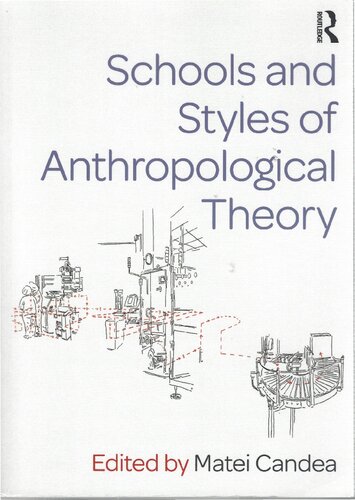

Most ebook files are in PDF format, so you can easily read them using various software such as Foxit Reader or directly on the Google Chrome browser.
Some ebook files are released by publishers in other formats such as .awz, .mobi, .epub, .fb2, etc. You may need to install specific software to read these formats on mobile/PC, such as Calibre.
Please read the tutorial at this link. https://ebooknice.com/page/post?id=faq
We offer FREE conversion to the popular formats you request; however, this may take some time. Therefore, right after payment, please email us, and we will try to provide the service as quickly as possible.
For some exceptional file formats or broken links (if any), please refrain from opening any disputes. Instead, email us first, and we will try to assist within a maximum of 6 hours.
EbookNice Team

Status:
Available5.0
13 reviewsThis book presents an overview of important currents of thought in social and cultural anthropology, from the 19th century to the present. It introduces readers to the origins, context and continuing relevance of a fascinating and exciting kaleidoscope of ideas that have transformed the humanities and social sciences, and the way we understand ourselves and the societies we live in today.
Each chapter provides a thorough yet engaging introduction to a particular theoretical school, style or conceptual issue. Together they build up to a detailed and comprehensive critical introduction to the most salient areas of the field. The introduction reflects on the substantive themes which tie the chapters together and on what the very notions of ‘theory’ and ‘theoretical school’ bring to our understanding of anthropology as a discipline.
The book tracks a core lecture series given at Cambridge University and is essential reading for all undergraduate students undertaking a course on anthropological theory or the history of anthropological thought. It will also be useful more broadly for students of social and cultural anthropology, sociology, human geography and cognate disciplines in the social sciences and humanities.